Naked Music, Full Life
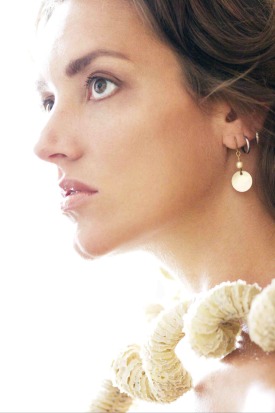 It’s no surprise that Jen Chapin was pulled in several directions. Her father, the late Harry Chapin, is most famous for writing and performing “Cat’s in the Cradle” but was also a humanitarian, co-founding World Hunger Year in 1975. Jen Chapin is following her own social-justice calling.
It’s no surprise that Jen Chapin was pulled in several directions. Her father, the late Harry Chapin, is most famous for writing and performing “Cat’s in the Cradle” but was also a humanitarian, co-founding World Hunger Year in 1975. Jen Chapin is following her own social-justice calling.

 This commentary track deals with a handful of themes: the blunt use of color contrasted with the almost tangential way the movie deals with its ostensible theme of liberty; the use of visual and aural cues to indicate the subjective nature of the film; Julie’s progression from isolation to active engagement with the world; and the relationship between the concept of “freedom” and Kieslowski’s obvious interest in responsibility. Plus, I call Juliette Binoche a “two-faced bitch.” How can you resist?
This commentary track deals with a handful of themes: the blunt use of color contrasted with the almost tangential way the movie deals with its ostensible theme of liberty; the use of visual and aural cues to indicate the subjective nature of the film; Julie’s progression from isolation to active engagement with the world; and the relationship between the concept of “freedom” and Kieslowski’s obvious interest in responsibility. Plus, I call Juliette Binoche a “two-faced bitch.” How can you resist? I was complaining to a friend about the final half-hour of Martin Scorsese’s The Departed, and he suggested I was looking at it all wrong. If you see the movie as a serious cop-and-gangster thriller, it does fall apart, with its escalating body count and that blunt-instrument final shot, juxtaposing unattainable dreams with vermin. But if you see it as a comedy … .
I was complaining to a friend about the final half-hour of Martin Scorsese’s The Departed, and he suggested I was looking at it all wrong. If you see the movie as a serious cop-and-gangster thriller, it does fall apart, with its escalating body count and that blunt-instrument final shot, juxtaposing unattainable dreams with vermin. But if you see it as a comedy … . I have no problem
I have no problem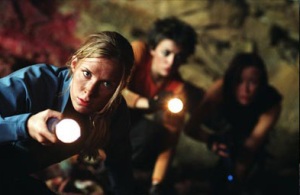 Neil Marshall’s The Descent approaches being a perfect terror movie. And because terror is unique to cinema among art forms – it doesn’t translate well to the page because the narrative has to slow down for the reader, and it doesn’t translate at all to any other medium – The Descent approaches being a perfect movie, period.
Neil Marshall’s The Descent approaches being a perfect terror movie. And because terror is unique to cinema among art forms – it doesn’t translate well to the page because the narrative has to slow down for the reader, and it doesn’t translate at all to any other medium – The Descent approaches being a perfect movie, period.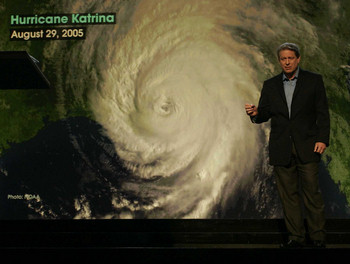 In Davis Guggenheim’s documentary An Inconvenient Truth, a high-angle shot of George W. Bush is followed by a shot of Al Gore looking down out of an airplane window. The juxtaposition delivers a subtle but forceful message: Al Gore is God, gazing in harsh judgment on this Republican president.
In Davis Guggenheim’s documentary An Inconvenient Truth, a high-angle shot of George W. Bush is followed by a shot of Al Gore looking down out of an airplane window. The juxtaposition delivers a subtle but forceful message: Al Gore is God, gazing in harsh judgment on this Republican president.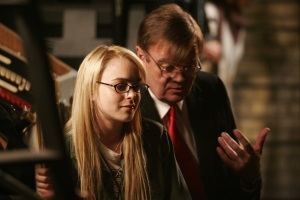 It’s not hard to figure out why Robert Altman was the center of attention with last summer’s A Prairie Home Companion – even though we didn’t know at the time of its release that it would be his final movie.
It’s not hard to figure out why Robert Altman was the center of attention with last summer’s A Prairie Home Companion – even though we didn’t know at the time of its release that it would be his final movie.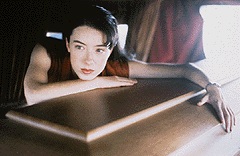 To slake your thirst for Culture Snob poetry, as well as the interactive, I have crafted multiple options for haiku based on Lynne Stopkewich’s 1996 movie Kissed. If you’ve never seen it or heard of it, I think you’ll get the gist pretty quickly.
To slake your thirst for Culture Snob poetry, as well as the interactive, I have crafted multiple options for haiku based on Lynne Stopkewich’s 1996 movie Kissed. If you’ve never seen it or heard of it, I think you’ll get the gist pretty quickly.